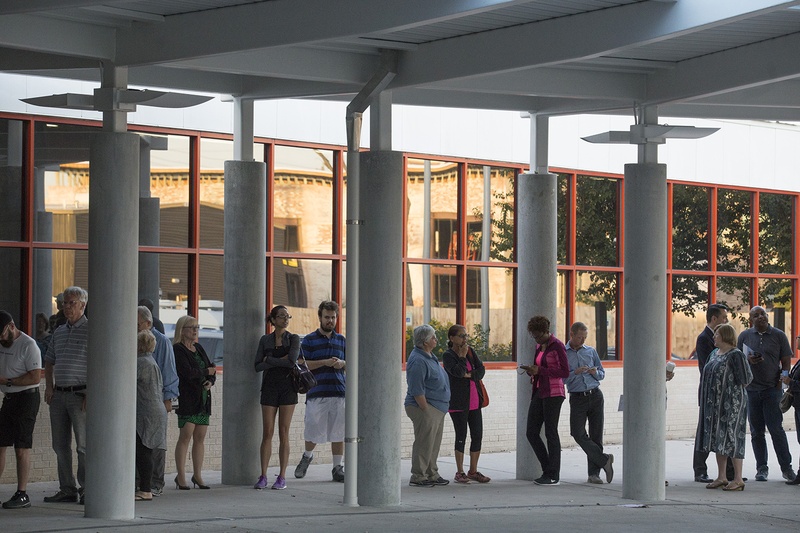Texas Senate tentatively approves voter ID fix

The Texas Senate tentatively approved legislation Monday that would revamp the state’s voter identification rules, a response to court rulings that the current law discriminates against minority voters.
Following more than an hour of debate, the chamber voted 21-10 to move the bill to a final vote, likely later this week.
Sen. Joan Huffman’s Senate Bill 5 would add options for Texas voters who say they cannot “reasonably” obtain one of seven forms of ID currently required at the polls. It would also create harsh criminal penalties for those who falsely claim they need to choose from the expanded list of options.
“I’m committed to constitutionally sound photo identification at polling places,” Huffman said.
Voting rights advocates have called the expanded list of options an improvement over the current embattled law, but they have pushed for ID options beyond those included in Huffman’s bill and raised concerns over the strict penalties for false claims.
Democrats on Monday sought to address those concerns through several proposed amendments that Huffman shot down.
The U.S. 5th Circuit Court of Appeals ruled last July ruled that Texas lawmakers discriminated against minority groups, who were less likely to possess one of the acceptable types of identification: a state driver’s license or ID card, a concealed handgun license, a U.S. passport, a military ID card, a U.S citizenship certificate or an election identification certificate.
A lower court temporarily softened the rules for November’s election, and Huffman’s legislation would largely follow its lead. The bill would allow people without photo ID to vote if they presented an alternate form of ID and signed an affidavit swearing a “reasonable impediment” kept them from obtaining such identification.
Those folks could vote under the proposal by presenting documents such as a utility bill, bank statement or paycheck. And election officers could not question the “reasonableness” of the excuse for not having photo ID.
“My intent with the bill is to take the roadmap that the 5th Circuit gave us,” Huffman said.
But those found to have lied about not possessing photo ID — by falsely signing the “reasonable impediment” form — could be charged with a third-degree felony under Huffman’s bill. Such crimes carry penalties of two to 10 years in prison.
Sen. José Rodríguez of El Paso was among Democrats seeking to soften the punishment, calling it too harsh for the crime — particularly in cases where a Texan is otherwise casting a legal vote.
“It has the effect of scaring people, intimidating people,” he said. “We should not be putting people in jail for up to 10 years for a lie that is frankly of no consequence.”
More than 16,400 Texas voters signed “reasonable impediment” affidavits during the 2016 general election, according to a tally of documents provided by the Texas secretary of state’s office. And an Associated Press analysis found at least 500 instances in which voters signed the affidavit — and didn’t show photo ID — despite indicating that they owned one.
Huffman said strict penalties were needed to deter such “abuse” of the new process.
“I think it’s very fair and down to earth,” she said.
Huffman did, however, amend her bill to make it more difficult to prosecute someone for such a false statement. Under her original bill anyone who “knowingly” signed a false statement could be guilty of third-degree felony. Under Huffman’s amendment, the penalty would apply to folks found to have “intentionally” made the false claim — a higher legal bar.
Huffman’s bill contained other provisions that proved less controversial. It would also allow voters older than 70 to cast ballots using expired but otherwise acceptable photo IDs. The bill would also require the Texas secretary of state to create a mobile program for issuing election identification certificates.
This article originally appeared in The Texas Tribune at https://www.texastribune.org/2017/03/27/texas-senate-tentatively-approves-voter-id-fix/.
Texas Tribune mission statement
The Texas Tribune is a nonprofit, nonpartisan media organization that informs Texans — and engages with them — about public policy, politics, government and statewide issues.





